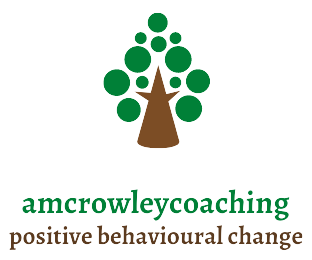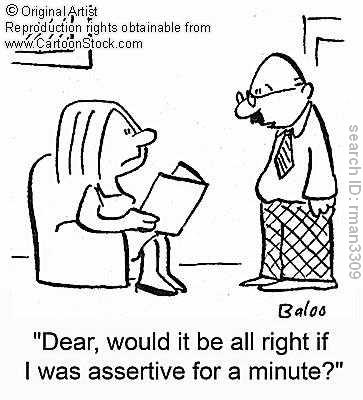A lack of assertive ability and skill, hold many people back from living their lives the way they want to; it is often at the heart of disengaged and demotivated people at work. A key component of EQ (emotional intelligence), assertiveness has often come up in many of my coaching and training sessions hidden in a diverse series of topics from building relationships and influence, to delivering positive customer experience to time management and leadership development. Here are a few examples:
Saying ‘no’ while maintaining the relationship with the person making a request on our time;
Being able to convey an important and difficult message which may have a negative impact on the recipient in a personal way;
Staying calm, positive and open, in the face of adversity, aggressive and negative criticism;
Asking for what you want and then truly, sincerely accepting the outcome, good or bad.
The place to start is to agree on the nature of assertiveness. You will not be surprised to hear that a lot of people mistake assertiveness for aggression but most people have no problem identifying passivity:
- Aggression is based on winning: putting what is in your own best interest first and above, the rights, feelings and needs of others. With aggression, I win and you lose.
- Passivity is based on losing: sacrificing your rights, feelings and needs for those of others. With passivity, I lose and you win.
- Assertiveness is based on balance: achieving a balance between your rights, feelings, needs and the rights, feelings, needs of others. With assertiveness, with both experience a win.
Have a go at identifying your tendencies right now by reading the following 18 statements; circule the ones that apply to you:
| No. | Statement | |
| 1 | I negate a compliment immediately with modesty I do not really feel, but am compelled to communicate | |
| 2 | When someone is rude to me, I retort fast back to them: no-one gets the better of me | |
| 3 | People tell me that they enjoy my company and feel comfortable with me | |
| 4 | When I meet people I do not know, I stay quiet and find it difficult to speak up | |
| 5 | I use sarcasm to drive home an argument, I find it supports what I am saying | |
| 6 | When I feel that I deserve a promotion at work, I am confident to ask for it | |
| 7 | In discussions, when interrupted, I immediately stop talking and opt out of the conversation | |
| 8 | When I receive feedback on my work with which I do not agree, I defend my position and find a way to make the giver back down | |
| 9 | When I feel proud of what I do and achieve I can communicate that to others without coming across as ‘full of myself’ | |
| 10 | I find that other people often seek me out to help them and I cannot get my work done as a result: they take advantage of me. | |
| 11 | If I want something badly enough I go after it, even if it means I have to tell others what they want to hear rather than the truth | |
| 12 | When I am in trouble or stuck in a problem, I do not hesitate to ask for help | |
| 13 | I find myself lending money and things to others when I really do not want to | |
| 14 | I win most of my arguments and am quite dominant in conversations and discussions | |
| 15 | I am very comfortable in being open and intimate with my feelings with people whom I love | |
| 16 | I keep angry feelings and thoughts inside as I do not think it is appropriate to let them out | |
| 17 | I get a very poor reaction from others when I give them critical feedback | |
| 18 | I can stand up for my rights and am able to put my points across, in a comfortable way |
Results: Place a circle around the statement numbers you have chosen, this will give you a broad indication of your tendencies (note the word ‘broad’, it is not scientific, obviously. For a more scientific and detailed result it is recommended you complete an emotional intelligence assessment available from an EQi Accredited Centre or Assessor):
| Statement No. | Statement No. | Statement No. |
| 1 | 3 | 2 |
| 4 | 6 | 5 |
| 7 | 9 | 8 |
| 10 | 12 | 11 |
| 13 | 15 | 14 |
| 16 | 18 | 17 |
| PASSIVITY | ASSERTIVENESS | AGGRESSION |
In the next few blog posts, I will give you some very practical examples from my training and coaching experience, on how to grow assertiveness for yourself and other people: handy skills and tips for everyday and working life. In the meantime, observe yourself and others in different situations to increase your self-awareness and understanding. All change at a personal level stems from self-awareness, so it is vital to start from there.
Anne Marie
Anne Marie Crowley, based in Cork, is a free-lance Coach and Trainer in the field of behavioural change for individuals and business. Anne Marie is the founder of Crowley Personal and Business Change.



Pingback: How to grow your assertiveness, first step observation…. | Crowley Personal and Business Change